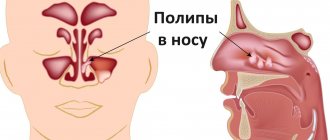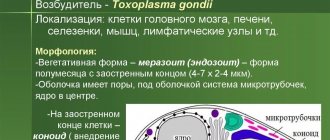We begin to appreciate such a gift of nature as speech only when, for some reason, our voice is lost. It is believed that the voice may disappear due to overstrain of the vocal cords. But this is only one of the few reasons why the voice disappears. Some of the reasons are really serious and require mandatory treatment. What can cause you to lose your voice? Which doctor should I contact? How to return and how to treat a lost voice? You will find the answers in our new article.
The ability to speak is one of the most important human abilities. This is a kind of second signaling system that animals or birds do not have. Our vocal apparatus performs a communicative function: with its help we can communicate with others, voice our thoughts, and share news. We take the speech process for granted. But only until the person lost his voice. At this moment, we are deprived of the opportunity to quickly and clearly convey information to another person.
This condition, such as loss of voice, has its own medical name - aphonia. It can be complete, when there is no voice at all, or partial, when a person can pronounce sounds in a whisper.
Voice loss can be a real problem, especially for those who make a living through their voice apparatus - singers, announcers, teachers, call center employees, etc. In this case, the task of quickly regaining the ability to speak and curing a lost voice becomes especially acute.
It is believed that the voice is lost due to loud screaming or overexertion of the vocal cords. But this is only one of the reasons. Answer the question: “What to do if your voice is lost?” It will be possible only after the real reason has been established. Only an otolaryngologist can diagnose and determine why the voice has disappeared. After a correctly established diagnosis, the doctor prescribes measures that will help restore the person’s ability to speak fully.
Why does my voice disappear? How to get your lost voice back quickly and effectively? How to treat a lost voice? We will answer all questions in our new article.
Causes of the condition
A person makes sounds using the air that passes through the vocal cords. These are folds of the mucous membrane and muscles with which you can close them into a gap. The ligaments vibrate, resulting in speech or singing.
When the ligaments become inflamed, they swell, which is why they cannot fully form a gap. As a result, the voice becomes hoarse or disappears completely.
Fatigue and overstrain of the ligaments also leads to voice problems. They turn red, pain occurs, and it becomes difficult to speak. Increased dryness in the throat prevents the cords from vibrating, causing the sound to become hoarse.
If there are tumors on the ligaments, the voice changes. This occurs due to incomplete closure of the folds into the gap, due to which the passage of air causes not a melodic sound, but wheezing.
Immunostimulants in the treatment of chronic laryngitis
During treatment, agents that activate the immune system are often used.
IRS® is a drug from the group of immunostimulants, containing bacterial lysates of the main pathogens of diseases of the upper respiratory tract. It is used in the complex treatment of chronic laryngitis, strengthening local immunity and increasing resistance to infections. IRS® is produced in the form of an aerosol, which makes the use of the medicine convenient even for children from three months5.
Once on the mucous membrane of the upper respiratory tract, IRS® helps destroy pathogenic microflora, strengthening defense mechanisms, directing the immune system to fight infectious agents. With the help of IRS® it is possible to reduce the number of colds and reduce the likelihood of complications. The immunostimulant helps stop the inflammatory process and prolong remission for a longer period6.
Possible diseases
In a healthy person, the ligaments can become tired if you talk too much. In this case, vocal peace will help you recover. But sometimes hoarseness occurs due to various diseases.
Pathologies in which there is hoarseness:
- laryngitis;
- ARVI;
- papillomas on the vocal cords;
- tuberculosis;
- neoplasms in the area of the vocal cords.
To find out what a person is sick with, you need to see a general practitioner for an initial consultation.
Self-medication
Self-medication often leads to complications that may require surgery. Traditional medicine can only complement therapy aimed at suppressing the parasite. Along with this, the patient is prescribed a diet. It consists of eliminating foods from the diet that irritate the mucous membrane. This list can include all salty, peppery and spicy dishes that are served hot.
You can restore your voice in the absence of an inflammatory process on your own. Plant extracts that have a sedative effect (valerian solution or motherwort decoction) will help relieve nervous tension.
In case of vocal cord dysfunction, for example, after a football match, their rehabilitation will be facilitated by raspberry or blackberry juice and eggnog with the addition of a tablespoon of cognac. After taking them, it is recommended to remain silent so as not to strain the ligaments. Speaking in a whisper is not recommended, as this puts additional stress on the muscles of the larynx, which can only worsen the situation. If talking cannot be completely avoided, you should speak more slowly than usual. All words must be pronounced clearly.
Diagnostics
It is not difficult to determine that an adult has a hoarse voice due to a cold or other condition. But it is not always possible to find out the reason for this on your own. The doctor looks at the throat and sees changes in it that an ordinary person would not notice through a mirror. If there is any doubt about the diagnosis, the patient is referred to an otolaryngologist or phoniatrist - a specialist in the voice apparatus.
The examination includes:
- general blood test - reveals the viral or bacterial nature of the disease;
- laryngoscopy - detailed examination of the ligaments using a laryngoscope;
- X-ray of the chest organs - if tuberculosis infection is suspected.
The patient goes to the doctor with the results of diagnostic procedures; you should not try to decipher them yourself. The specialist will select treatment and give recommendations on how to quickly restore your voice.
Read also: Why does a runny nose not go away?
Who to contact?
Diagnosis and therapy of the vocal apparatus is carried out by a doctor - an otorhinolaryngologist or an ENT doctor with a narrower focus - a phoniatrist, whose specialty is directly the pathology of the vocal cords.
There is no need to self-medicate and try to regain the ability to speak independently without visiting an ENT doctor, given the variety of causes that cause aphonia.
Only an ENT doctor can correctly determine what triggered the unpleasant symptom and effectively restore the lost voice.
At the initial appointment, the ENT doctor interviews the patient regarding complaints. If aphonia is caused by infectious diseases, the patient may experience other symptoms: sore throat, problems with swallowing, high fever, aching joints, etc. Then a direct examination of the larynx is performed - laryngoscopy. The patient may be referred to undergo laboratory blood tests, which will help confirm the course of the inflammatory process in the body. If neoplasms are detected, additional studies may be required - ultrasound, CT, biopsy.
Only after establishing the cause of aphonia, the ENT doctor determines a treatment regimen that will help restore the ability to speak.
Treatment
In case of hoarseness, vocal rest is required. You can't talk at all, especially in a whisper. Such speech strains the ligaments more than trying to speak loudly.
Recommendations for voice restoration:
- Drink plenty of warm drinks to moisturize the ligaments and remove toxins released by the cold pathogen.
- Herbal infusions - chamomile and thyme help reduce inflammation, and ginger tea relieves hoarseness.
- Humidifying the air prevents the ligaments from drying out, which speeds up the return to normal voice.
If hoarseness appears against the background of an acute respiratory viral infection, you can use drugs for symptomatic treatment. They will help you recover faster and regain the ability to speak normally.
Medicines:
- Antibiotics are necessary for acute laryngitis and high temperature from 38.5°C for longer than 3-5 days, as well as for tuberculosis infection.
- Anti-inflammatory sprays - Hexoral, Cameton and others reduce the severity of inflammation.
- Lozenges for resorption - Falimint, Strepsils and the like have an enveloping effect on the ligaments, relieving pain.
If you follow all the recommendations and follow the prescribed treatment, your voice can be restored in 3-4 days. Other remedies - cognac, raw eggs or hot beer - give a quick but temporary effect. It will last for an hour or two, after which the cords will feel even worse, and the voice may disappear completely.
Dear patients! Remember that only a qualified doctor can make an accurate diagnosis, determine the causes and nature of the disease, and prescribe effective treatment. You can make an appointment with our specialists or call a doctor at home by calling 8-(4822)-33-00-33
Be healthy and happy!
Who is at risk of aphonia
At times, the voice of people whose work depends on it—singers and teachers—loses. Not so long ago, scientists made an interesting discovery - the teacher’s voice is several decibels louder than that of the average person, which creates additional stress on the ligaments. Smokers are also among the people more susceptible to voice loss, as are lovers of soda, crackers and other substances that can irritate the mucous membrane that covers the throat. Excessive consumption of alcohol, coffee, spicy or just hot foods can also negatively affect the condition of the larynx and lead to aphonia.
Attention!
This article is posted for informational purposes only and under no circumstances constitutes scientific material or medical advice and should not serve as a substitute for an in-person consultation with a professional physician.
For diagnostics, diagnosis and treatment, contact qualified doctors! Number of reads: 9755 Date of publication: November 28, 2017
Otolaryngologists - search service and appointment with otolaryngologists in Moscow
How to treat hoarseness?
Before prescribing a course of treatment, the otolaryngologist performs a visual examination of the larynx to identify the cause of the disease. Visual diagnostics and endoscopy of the throat are carried out: an integrated approach is used for a full analysis.
When diagnosing, specialized tools and equipment are used. A differentiated analysis of symptoms is necessary when it is not possible to find out the real cause of the problem. The doctor may use an endoscope, a probe to examine the throat and larynx during laryngoscopy. The otolaryngologist also works with the deep laryngeal laryngeal speculum. A fibrolaryngoscope is used to examine the nasopharynx under local anesthesia of the nasal cavity. Another commonly used tool is a strobe light, which allows you to diagnose pathologies. Electrophysical studies are carried out, the level of mobility of the larynx and folds in dynamics is assessed. Anesthesia is not required here, since the procedures do not cause discomfort or pain.
The course of therapy is prescribed taking into account the problem, the cause of its occurrence, medical history and examination. To treat hoarseness use:
- Drugs aimed directly at eliminating disorders in the vocal apparatus.
- Anti-inflammatory drugs, if hoarseness is accompanied by fever, more than 38 degrees.
- Antibiotics if the problem is caused by a bacterial infection causing hoarseness.
In addition to taking the above medications, physiotherapy is carried out, expectorants are prescribed in the presence of bronchitis or tracheitis, as well as vitamin complexes to increase strength and immunity.
When prescribing treatment, individual parameters are taken into account: age, concomitant and previous diseases, structural features of the larynx, the presence or absence of allergic reactions.
How to increase the effectiveness of treatment at home?
When restoring your voice, you must follow a number of recommendations. Medicines prescribed by an otolaryngologist should be taken in a clearly indicated dosage. You need to increase your consumption of warm drinks, switch to bland food, walk in the fresh air, and use a humidifier at home, if possible. Staying in a room with high humidity (up to 70%) will promote a speedy recovery. Of course, the emotional mood is important. Psychosomatics is an important part of the treatment of any disease. It is important to set yourself up correctly, improve your mood, tune in to a speedy recovery, and be in a pleasant environment.
“Increase your consumption of warm drinks, switch to bland foods, and eliminate spicy foods from your diet. Get outside more and use a humidifier at home.”
Often there is no reason to worry and see a doctor. It is enough to follow a drinking regime, take care of a sufficient level of humidity in the room, and reduce vocal activity in order to recover faster.
Drinking plenty of fluids means drinking not only tea, but also soups and broths at room temperature. Both cold and hot liquids should be avoided.
An excellent means of recovery is honey. The product relieves inflammation, improves immunity, and restores the body. You can consume honey, for example, with herbal tea, warm milk, or on its own. This will have a beneficial effect on irritated vocal folds.
It is useful to drink black or herbal tea with chamomile and thyme, and add ginger to it. Tea with raspberry jam and tincture of raspberry leaves will also be beneficial.
Another good way to restore the sonority of your voice is inhalation. A simple inhaler is sold at any pharmacy. You can carry out inhalation procedures yourself, at home. To do this, just boil water poured into a pan and breathe over it for 15-20 minutes, covered with a towel.
At the first signs of hoarseness, pregnant women should immediately consult a doctor, as this may affect the development of the fetus and congenital abnormalities. It is important to respond to even seemingly minor hoarseness as quickly as possible, as there is a risk of a serious problem arising.
In any case, difficulty breathing, sore throat, and rapid fatigue indicate disturbances in the functioning of the vocal apparatus and become a reason for taking action. If you experience even minor discomfort, you can contact our clinic. Our medical institution specializes in phoniatrics: one of the rarest areas in medicine - phoniatrics and helps patients of all ages cope with diseases of the ear, nose and throat. Take care of your health and be vigilant!
View this post on Instagram
Publication from |LEV RUDIN'S CLINIC| (@levrudin)
Classification of voice disorders
In medicine, voice disorders are divided according to the degree of manifestation of the disorder into:
- Dysphonia is a disorder in which the strength of the voice decreases, its color and pitch change. With dysphonia, the voice becomes hoarse, lowers, and becomes hoarse;
- aphonia is a disorder during which the voice disappears completely. With aphonia, a person can only whisper.
According to the mechanism of development, these disorders are divided into:
- organic;
- functional.
Based on the location of lesions of the vocal apparatus, voice disorders are:
- central - voice disorder resulting from pathological processes occurring in the middle of the vocal apparatus;
- peripheral - pathological changes occur in the peripheral part of the vocal apparatus.
Signs of functional voice disorders
Most often, voice disorders are caused by functional diseases of the vocal apparatus, that is, when its motor function remains normal, there are no anatomical changes.
One of the most common voice disorders is phonasthenia. People in speech professions often encounter it. Less commonly, it occurs as a result of overwork, weakening of the body's defenses, or traumatic situations. Typically, patients in this case complain of excessive voice fatigue, the inability to talk for a long time, hoarseness after speaking, pain in the throat and external muscles of the larynx.
Hypotonic dysphonia, which arose due to paresis of the larynx, resulting in non-closure of the vocal cords, is accompanied by hoarseness and fatigue. Such patients are often forced to speak in a whisper.
Convulsive compression of the laryngeal muscles can provoke the occurrence of hypertonic dysphonia. With it, the voice coarsens and sounds dull. A person suffering from aphonia completely loses his voice.
With a pathological mutation, voice variability persists even after adolescence.
Almost all patients with functional voice disorder complain of hoarseness, hoarseness, and inability to control the sound of their voice.
Initial symptoms
In the first stages, the volume of a person’s voice decreases, its quality and timbre changes. The folds quickly become tired, and it becomes uncomfortable for a person to swallow or talk. The most dangerous type of hoarseness is chronic, since in this case the entire vocal apparatus is gradually and permanently rebuilt. Subsequently, hoarseness increases and the voice weakens. When diagnosing, an otolaryngologist finds out the background and history of the development of the disease, and treatment measures taken previously. An ENT examination is performed with direct or indirect laryngoscopy. If required, the specialist will prescribe an ultrasound of the thyroid gland, MRI or computed tomography to identify possible causes of laryngeal depression.
“In the first stages, the volume of a person’s voice decreases, its quality and timbre changes. The folds quickly become tired, and it becomes uncomfortable for a person to swallow or talk.”











